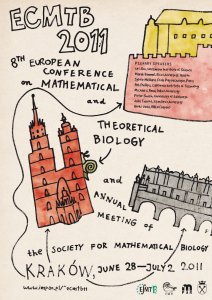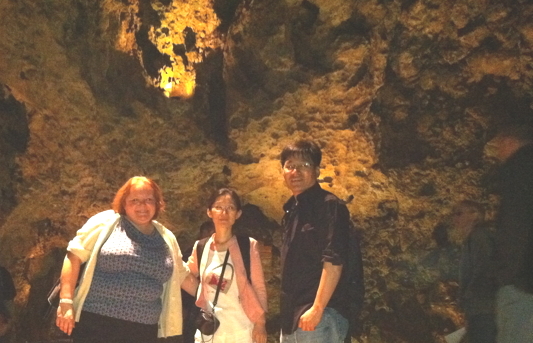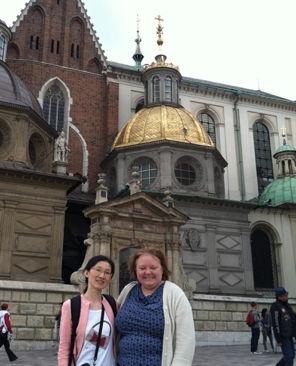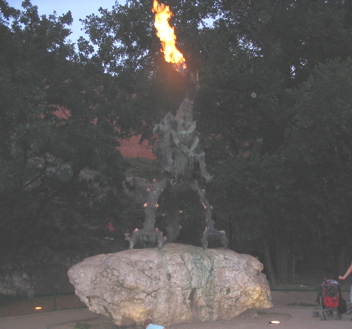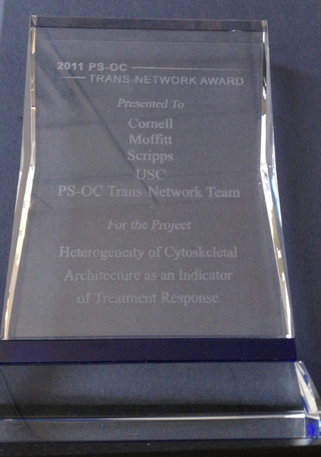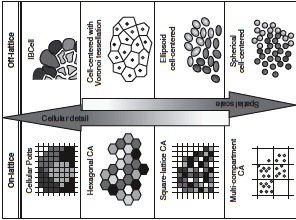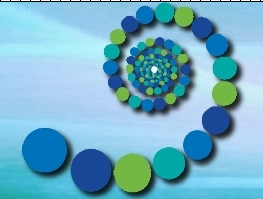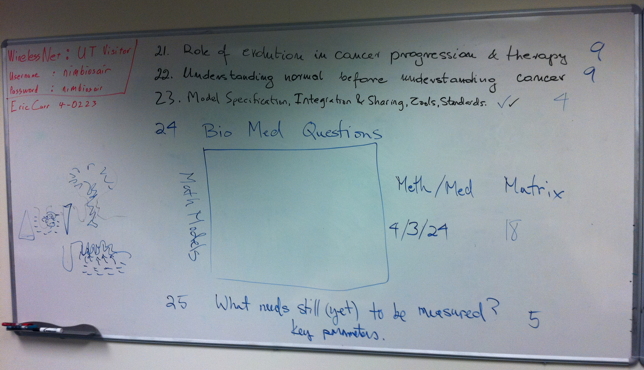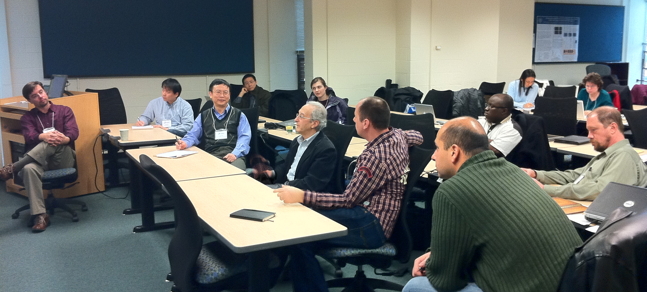* 2011 November 30th, the undergraduate student lecture “Mathematical Modeling in Cancer Biology” has been presented by Kasia Rejniak at the University of Tampa, Department of Mathematics, Tampa, FL, USA; Lecture Series in Mathematics seminar: “Mathematical Modeling in Cancer Biology”
* 2011 November 3-6, AACR conference on Tumor Microenvironment Complexity: Emerging Roles in Cancer Therapy, Orlando FL, a poster presentation of our work by Kasia Rejniak.
* 2011 October 28th, Multiscale Systems Biology Working Group Webinar, part of the Interagency Modeling and Analysis Group, an invited talk has been presented by Kasia Rejniak.
* 2011 October 25th, Kasia Rejniak's visit to the Biocomplexity Institute at Indiana University, Bloomington, IN.
* 2011 October 17-18, 2nd International Definiens Symposium, Moffiitt Cancer Center, Tampa FL, a poster presentation of our work by Mark Lloyd.
* 2011 October Dr. Banu Baydil joined the group as a postdoctoral fellow.
* 2011 September 30th, Kasia Rejniak's visit to Duke University, Department of Mathematics.
* 2011 September 23, PS-OC NCI site visit, Physical Sciences-Oncology Center Moffitt Cancer Center, Tampa, two poster presentations: TransNetwork research by MunJu Kim and Pilot Project research by Kasia Rejniak.
* 2011 September 14-16, NCI ICBP Annual Meeting, New York, poster presentation by Kasia Rejniak.
* 2011 July Dr. MunJu Kim joined the group as a Reserch Scientist.
* 2011 June 28-July 2, 8th European Conference on Mathematical and Theoretical Biology & Annual Meeting of The Society of Mathematical Biology, Krakow, Poland, three invited talks by Kasia Rejniak.
* 2011 June 9th, Kaisa Rejniak's visit to Boston University, School of Dental Medicine, Department of Molecular and Cell Biology, Boston, Massachusetts.
* 2011 May 27th, Kasia Rejniak's visit to the National Institute of Health (NIH/NIDCR), Laboratory of Cell and Developmental Biology, Bethesda, Maryland.
* 2011 May 24-26, Frontiers in Cell Migration & Mechanotransduction conference, Bethesda, MD, poster presentation by Kasia Rejniak.
* 2011 May 19-20, PSOC-ASU Cancer Forum on Cancer Cell Motility and Metastasis: “Invasion: how cancer cells spread around the body”, Beyond Center for Fundamental Concepts in Science, Arizona State University, Tempe, invited participation by Kasia Rejniak.
* 2011 April 26-30, Cold Spring Harbor Laboratory Workshops, "The Biology of Cancer: Microenvironment, Metastasis & Therapeutics", Cold Spring Harbor, NY, poster presentation by Kasia Rejniak.
* 2011 April NCI/PSOC Trans-Network Team Award for the project “Heterogeneity of Cytoskeletal Architecture as an Indicator of Treatment Response”, awarded to Kasia Rejniak to foster collaboration between four PSOC Centers (Cornell, Moffitt, Scripps, University of South California).
* 2011 April 10-12, PSOC Annual Meeting, La Jolla, CA, poster presentation by Kasia Rejniak.
* 2011 April 2-6, AACR Annual Meeting, poster presentation by Kasia Rejniak.
* 2011 March 3rd, Kasia's visit to the Scripps Research Institute, La Jolla, California
* 2011 February 27-March 2, AACR-NCI Conference on Systems Biology: Confronting the Complexity of Cancer, San Diego
* 2011 February 6-11, 8th Gordon Research Conference on Salivary Glands and Exocrine Biology, Galveston, Texas, invited plenary presentation, part of the “System Biology” session
* 2011 February, new paper published: an invited review by Kasia and A. Anderson, "Hybrid models of tumor growth", Wiley Interdisciplinary Reviews: System Biology and Medicine
* 2011 January 19-21, NIMBioS Investigative Workshop on “Solid Cancer Modeling: Biological, Computational and Clinical Challenges”, National Institute for Mathematical and Biological Synthesis, co-organized by Kasia
Past News: 2010 News
![]()
![]()
![]()
![]()
![]()
2011 February, "Hybrid models of tumor growth", an invited review by Kasia and A. Anderson published in Wiley Interdisciplinary Reviews: System Biology and Medicine
![]()

